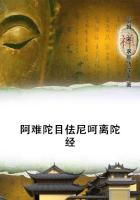On the third day Asada Khan started with his forces two hours in advance of the royal troops,crossed the river first,and hastened to join the Sultan.Adil Shah received him with great apparent cordiality,and at length freely forgave him on the Khan's protestations that his intrigues with Vijayanagar and the Portuguese were only so many moves in a game undertaken for the advancement of the Sultan's interests.Previous to this move the Khan had held a conversation with Figueiredo,in which he succeeded in totally deceiving him as to his intentions,and reiterated his promises to obtain the cession of the mainlands from the Raya,for whom he professed the greatest friendship.
In the end,says Barros,the Adil Shah,secretly fearful of Asada Khan's duplicity,made a treaty of peace with the Raya,by which the Muhammadans retained Raichur but gave up some other territory.
Though this story differs from Firishtah at almost every point,it is permissible to think that it may refer to the events of 1535,when the Sultan visited Vijayanagar;for in continuing his narrative,Barros a little later mentions the year 1536.It seems hopeless to try and reconcile the conflicting stories of Nuniz,Barros,and Firishtah,but enough has been said to afford insight into the character of Asada Khan.Nuniz echoes the general sentiment when he writes of the Khan's rescue of the Adil Shah,after his defeat at Raichur in 1520A.D.,as being effected "by cunning,"for his own purposes;and when he describes how,by a series of lies,Asada contrived the execution of Salabat Khan at the hands of Krishna Raya.
During this reign the Portuguese were busy establishing themselves at various places on the coast,and they built several forts there for the protection of their trade.They had been constantly at war with the Samuri of Calicut and other feudatories of Vijayanagar;but with the Raya himself they were on terms of friendship,and in 1540they ratified a treaty of peace with the sovereigns of Bijapur and Ahmadnagar as well as with the Samuri.
Throughout the whole of their dealings with the Portuguese I find not a single instance where the Hindu kings broke faith with the intruders,[287]but as much cannot,I fear,be said on the other side.The Europeans seemed to think that they had a divine right to the pillage,robbery,and massacre of the natives of India.Not to mince matters,their whole record is one of a series of atrocities.It is sad to turn from the deion given us by Paes of the friendship felt for the Portuguese,and especially for Christovao de Figueiredo,by the "gallant and perfect"King Krishna Deva,and then to read of the treachery of the Viceroy towards the great Hindu Government;with which the Portuguese had made alliances and treaties,and for which they openly professed friendship.Thus,to take one instance only,in 1545the governor of Goa made ready a large fleet and a force of 3000men,but kept all his preparations secret,for very good reason.His object was to sail round the coast to San Thome,near Madras,land his troops,march inland,and sack the great temple of Tirumala or Tirupati,purely for lust of gain.Luckily a severe storm prevented him from setting said,but he plundered and destroyed some rich temples on the western coast,and enriched himself with the spoil This was a mere wanton attack on property belonging to feudatories of the Vijayanagar empire,for there has never been any pretence that the peace-loving Brahmans attached to these temples had in any way offended or interfered with the Portuguese.
In the time of Achyuta a large number of grants were made by the nobles to temples throughout Southern India,and numerous inions on stone and copperplates are extant relating to these charitable and religious donations.One of the most important has been published by Professor Kielhorn.[288]It relates that the king,being on the banks of the Tungabhadra on the 12th October A.D.1540,at the temple of Vitthalasvami or Vitthalesvara --the splendidly sculptured pavilions of which remain to this day,even in their ruin and decay,an object of astonishment and admiration to all beholders --gave a grant of a village not far from Madras to the Brahmans learned in the Vedas.
The last date of Achyuta known to epigraphists at present is found in an inion[289]bearing a date corresponding to January 25,A.D.1541;and the earliest date similarly available of his successor,Sadasiva,is July 27,A.D.1542.















